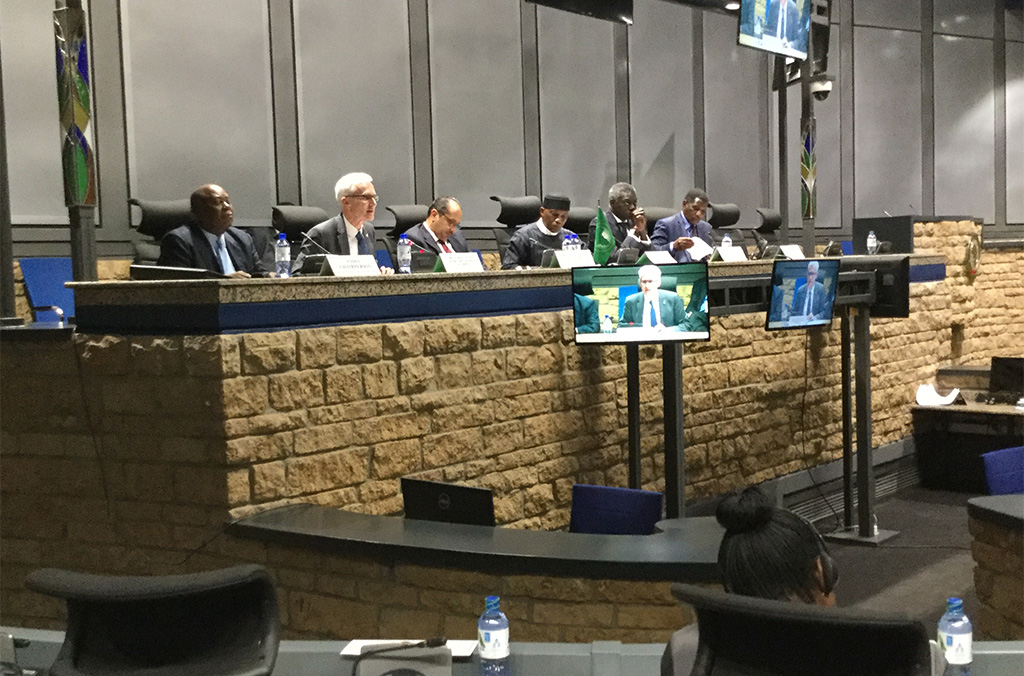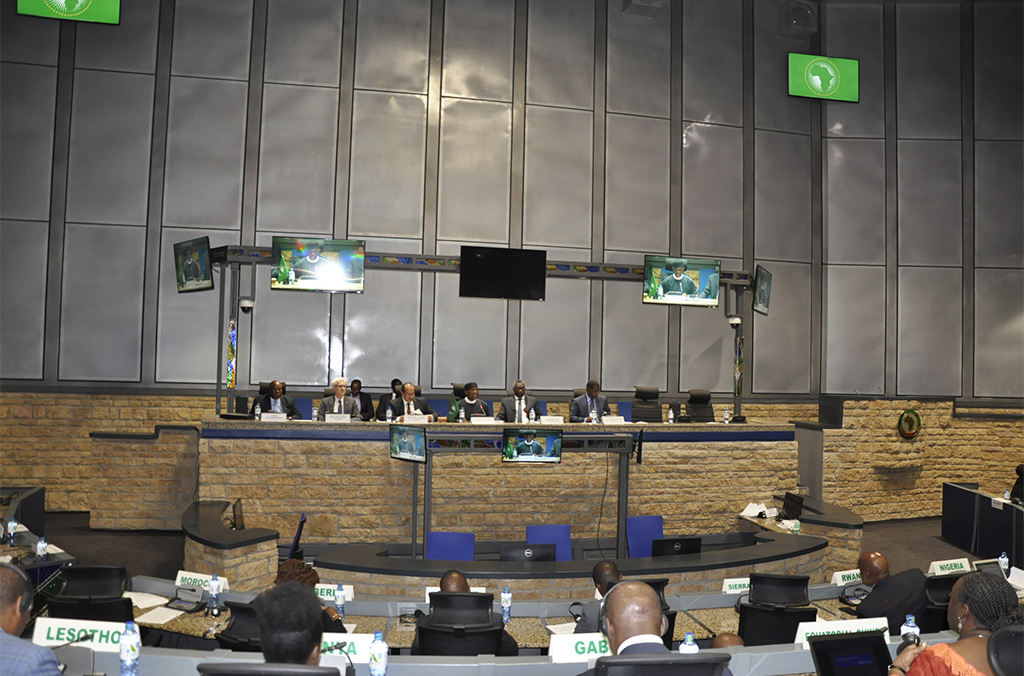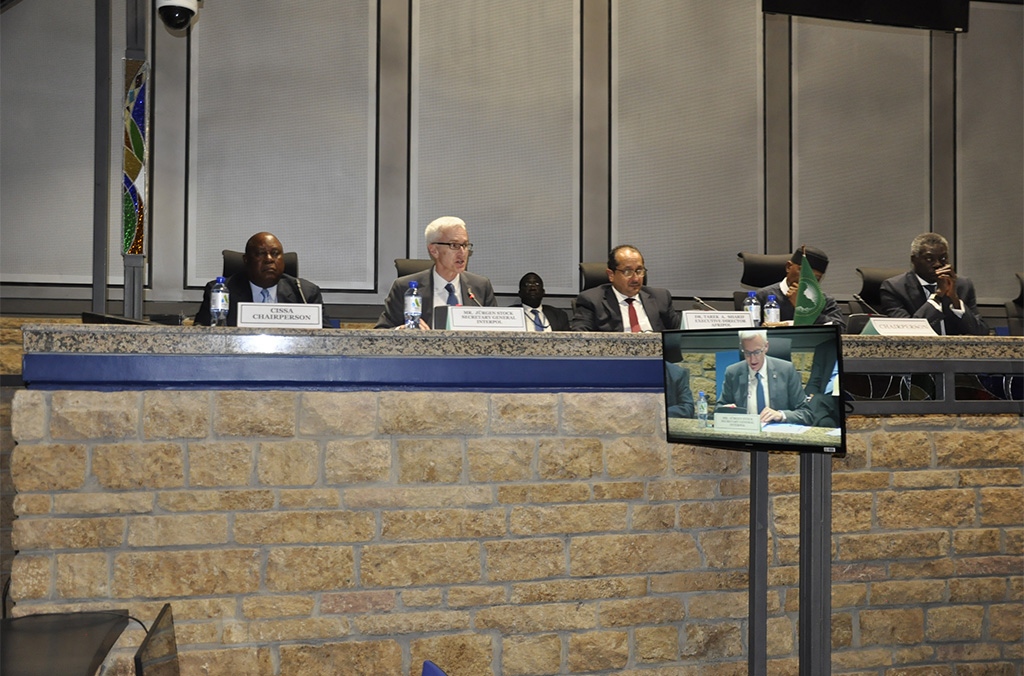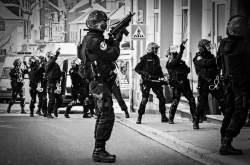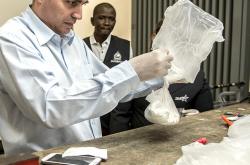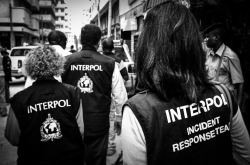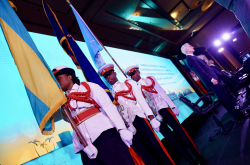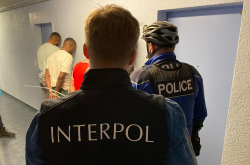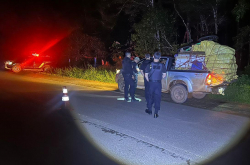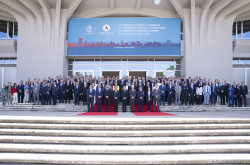ADDIS ABABA, Ethiopia – Addressing the African Union (AU) Peace and Security Council, INTERPOL Secretary General Jürgen Stock outlined the Organization’s activities across the region to combat transnational crime and terrorism.
The INTERPOL Chief highlighted the deployment of an Incident Response Team (IRT) to Kenya to support the national authorities’ investigation following the Nairobi terror attack in January.
Expertise provided by the INTERPOL team included disaster victim identification, cyber analysis to decrypt seized mobile phones and other portable devices, biometrics, explosives and firearms, as well as photo and video analysis.
To assist law enforcement across Africa disrupt the criminal networks behind transnational organized crimes including human and drug trafficking, people smuggling and environmental crime, Secretary General Stock said INTERPOL provided both analysis and operational support.
“Criminals, terrorists and armed insurgents alike are profiting from crime, moving people and products through illicit trafficking routes and networks, creating fault lines from one region to the next across Africa.
“INTERPOL’s focus remains on ensuring our efforts are directed towards where the action happens, on the frontlines of policing.
“This is why INTERPOL’s global policing capabilities and initiatives for Africa are designed to best support ground-level realities,” added the INTERPOL Chief, pointing to the recent Operation Epervier II.
Conducted in Benin and Nigeria in early April, the operation resulted in the rescue of almost 220 victims of human trafficking, among whom were 157 children aged 16 and under.
Investigations are continuing with police having arrested 47 people in addition to seizing vehicles, cash, mobile phones and computers.
To support national and regional policing needs, Secretary General Stock pointed to the role played by the four INTERPOL Regional Bureaus for Central, East, West and Southern Africa, in addition to the Special Representative office at the African Union which opened in 2016.
In January this year INTERPOL and the AU signed an information sharing agreement which provides a platform for cooperation with AFRIPOL in the fight against terrorism and organized crime.
Under the accord, AFRIPOL will have access to INTERPOL’s nominal, stolen motor vehicles, and stolen and lost travel documents databases.




